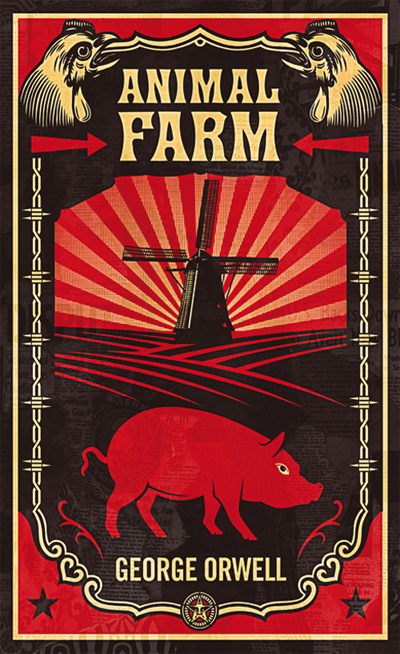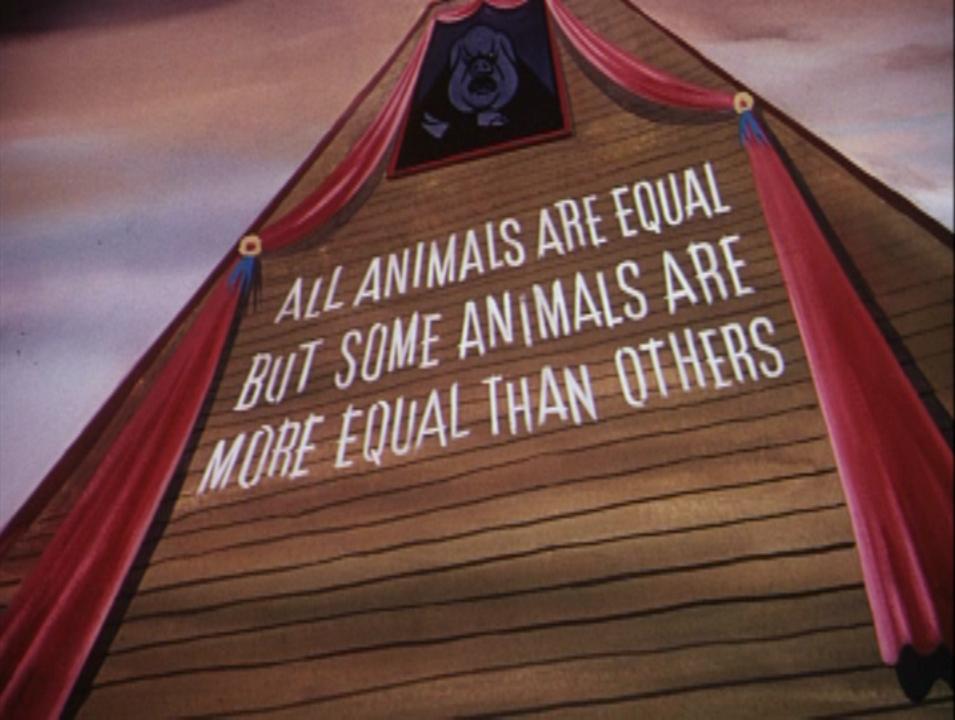 At first I didn’t think I’d review this book since I figure everyone read it in school, but considering I didn’t read it in school it’s a fair assumption that Animal Farm wasn’t on everyone’s summer reading list.
At first I didn’t think I’d review this book since I figure everyone read it in school, but considering I didn’t read it in school it’s a fair assumption that Animal Farm wasn’t on everyone’s summer reading list.
First, Animal Farm is a novella. It’s super short, which makes it a great choice for someone who’s trying to read 50 books in a year while homeschooling her children, freelancing, writing a novel, and a training for a half marathon. Time is valuable, so a quick read here and there is helpful.
Second, Animal Farm is an allegory – a narrative with a hidden meaning, particularly of religious or political significance. The main characters in the story are farm animals who are tired of being used and abused by humans and seek an autonomous existence from their tyranny. Once they establish themselves as self-ruling, they create a pseudo-utopia and strive to live in peace with one another according to the Seven Commandments:
1. Whatever goes upon two legs is an enemy.
2. Whatever goes upon four legs, or has wings, is a friend.
3. No animal shall wear clothes.
4. No animal shall sleep in a bed.
5. No animal shall drink alcohol.
6. No animal shall kill any other animal.
7. All animals are equal.
Of course, the dream starts to fade, as they are likely to, when leaders arise from the pool of equality. The pigs are self-appointed leaders of Animal Farm (formerly called Manor Farm) and they quickly move into a dictator position.
George Orwell (pen name for Eric Blair) was openly supportive of and a believer in socialism, and Animal Farm is specifically written as an allegory of the Russian Revolution. Mr. Jones, the human owner of Manor Farm, is the czar of Russia who could not keep his country organized during World War I. Old Major, a prized elderly pig, is Lenin, an idealist who planted the ideas of a rebellion in his people. Napoleon (Joseph Stalin) is a young pig who rivals another young pig, Snowball (Leon Trotsky), for dominion. Squealer, a third young pig, is Napoleon’s chief officer and master of persuasion, a key character used to kick Snowball off the farm.
There are work horses are repeat mantras to themselves all day, a quiet, wise donkey who knows what’s coming, a parroted raven who serves as a mega-phone for the pigs, slave-driven hens who must produce eggs and then more eggs, and so on. Each animal represents an ideology or social class, and there are other human characters that mirror historical figures, like Fredrick, a farmer from a neighboring field, who forges an alliance with the pigs to rule Animal Farm. You know, like Adolf Hitler.
Other elements of farm life hold significance too, like the barn (the working class) and the windmill (the pigs’ ability to manipulate the other animals).
It’s helpful to have some sort of working knowledge about the Russian Revolution and subsequent power plays across Europe to fully grasp the point of Animal Farm – which is, socialism works as long as no one gets greedy. As long as no one puts himself above the others, a world of leveled class structures is possible.

As with humans, inevitably greed surfaces and the power-hungry make new rules. The pigs rule the farm and declare that while all animals are equal, “some animals are more equal than others.” Classes are once again separated and oppressed, yet some hang on like desperate believers that the pigs know what’s best for them. There is truth in allegory.
I’m not sure why I never read this book in high school, but it’s never to late to hit the old summer reading list. For what it’s worth, anti-Marxist material is much more enjoyable when acted out by animals.
